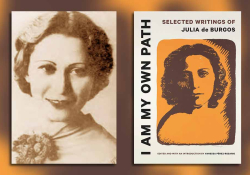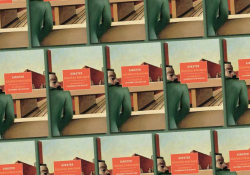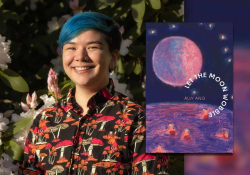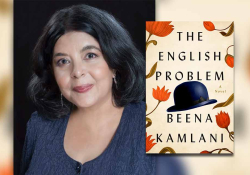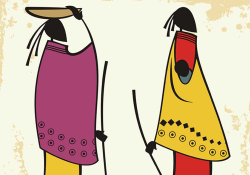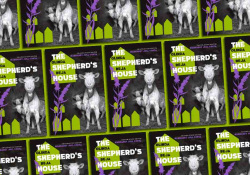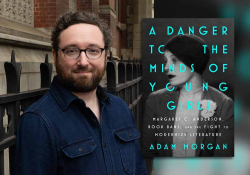A Secret History of Compassion: The Double Debut of India’s Master of Short Fiction

India’s Paul Zacharia, after five decades perfecting the art of the short story in the Malayalam language, spoken in the state of Kerala, has published his first novel, A Secret History of Compassion (Context, 2019), in English. The novel has received wide press coverage. The author, whose oeuvre is comparable in scale to that of Alice Munro and Raymond Carver, is being asked: Why write a novel now? Why write in English? To India Today, he said: “Malayalam gave me wings, and English opened up a parallel world of imagination.” To the Indian Express, he added: “English is now an Indian language. It has been here for two-hundred-odd years. It has been mauled and damaged, but that is also how it becomes naturalized.” Zacharia started the novel in Malayalam over a decade ago, but constrained by his mother tongue’s shy prudery, he switched to English and set out to pursue in his novel pure storytelling as opposed to dealing in middle-class grievances.
Zacharia’s novel is a finely constructed box of accumulations of miniature fictions about the truth of our age.
The rich demotic brilliance of the distinctive “Zacharia style” is very much on display in his novel, which is clearly powered by the carnival spirit manifest in Mikhail Bulgakov’s The Master and Margarita and Salman Rushdie’s Midnight’s Children, not to mention François Rabelais’s Gargantua and Pantagruel, the foundational sixteenth-century novel that opens with the image of the novel as a box, a cabinet of curiosities. Indeed, Zacharia’s novel is a finely constructed box of accumulations of miniature fictions about the truth of our age.
The conceit of the novel is simple: Lord Spider, author of mass-market novels, asks his wife Rosi’s advice on writing in a new form, the essay—an essay on compassion commissioned by the Communist Party. When he sits down to write, the prolific author of 130 novels suffers a paralysis. Aged forty-one, facing the crisis that afflicts men of his age, Lord Spider realizes that he has expended his life on fiction “in a world brimming with non-fiction and the facts of life” and he asks himself the bold question: Can man live by fiction alone? What assurance is there that fiction will last beyond 2034?
Distraught, the author asks his wife for a chance to make love so that he could turn from fiction to nonfiction with ease, but Rosi, ever the philosopher, informs him that lovemaking itself is fiction and he is out of luck. Such is the writer’s block that follows that Lord Spider is reduced to idling away his time baring his teeth in the mirror, trying to commune with his copy in the mirror, and failing in the communion, he tries to draw inspiration from the paperweight statuette of Adam, Eve, and the Serpent.
Rosi, ever the philosopher, informs Lord Spider that lovemaking itself is fiction and he is out of luck.
Lord Spider confides in us that he has nothing against the Serpent. He is just troubled that no one can tell which way a snake is looking. We also receive a sly wink, signaling the novel’s lineage in the primal short story about the loss of the garden at the rise of civilization. To our relief, the despairing weaver of tales is soon approached by his number-one fan, Jesus L. Pillai, an aspiring writer himself, who offers his services to the master. Soon we learn that the writer’s helper is no mean muse. Pillai’s day job is that of a professional hangman, shapeshifting his hobby, and he also has total recall of his previous births. Appearing often in the shape of a bat, Pillai is as servile as Mephistopheles, yet quick with the all-important upside-down point of view. A fan of Bollywood, Pillai is waiting for a chance to pitch his own blockbuster movie idea based on one of his previous births, his frog birth.
As their collaboration begins, Pillai suggests that the essay ought to start with a sentence on the future of compassion, and he quickly dictates one: “The time is not far off when robot armies, interstellar ships and AI units controlling WMD’s and slaughterhouse machinery run by EI will be programmed with compassion.” Lord Spider is so impressed with that sentence he wants to discuss copyright. More sentences pour out of the bat’s lips, and the collaborative give-and-take sends the novel spinning free into a starry night of visionary elucidations.
The struggle to meet a deadline quickly turns into a leisurely exploration of compassion in an age of horror. Nothing is left out; even such existential problems as biting and the nature of teeth come up for the pair’s philosophical musing: “teeth are the sources of a monstrous, unending, moral crisis for humans.” The comings and goings in Zacharia’s carnival tent steadily accelerate with the clownish appearances of Karl Marx, Gandhi, Stalin, and Stalin’s seamstress. God herself shows up. Passion and compassion battle it out through stories like that of Bishop Hopper, who was burned at the stake in England in 1555. The passionate did such a botched job at burning the man, the half-burned bishop had to lend a hand in his own immolation.
An endearing family narrative also emerges, almost a middle-class marriage story, all adding up to a vision of modernity. The statuette of Adam, Eve, and the Serpent is never out of sight, as is the vision of the lost garden of imagination, art, and music. Slowly we learn that all the vanished music is waiting to be rediscovered in the Valley of Lost Songs.
While the writerly collaboration between Pillai and Lord Spider forms the bulk of the novel, the writer’s wife, Rosi, claims it as a marriage story, especially after she joins the writing team and leaps up into the air on an eschatological flight of fancy, a group flight that will take them to the Valley of Lost Songs. Even her dog joins the flight. In the grand finale, Rosi also surprises Pillai, the hangman friend, by asking for the experience of hanging so that she may gain academic knowledge of death, death wishes, and mortality itself.
Although thematically different from Arundhati Roy’s The God of Small Things, the two novels share the geography and the disenchantment with the promise of what is increasingly known as the “Kerala Enlightenment.” Rich in descriptions of the land, the sky, flora, and fauna, biting and eating by the human animal form the core of the narrative, and much of the pleasure is derived from the relentless bubbling of small revelations and bons mots. One moment we hear that the greatest worry in death is “never knowing who the next Pope is,” and the next, we learn that an egg is an egg because of “its shape and oozy content want[ing] to roll about and be eaten and done with.” The anarchy of humor and horror that Paul Zacharia presents in A Secret History of Compassion renews the unique cosmicomic path for India’s flourishing English-language fiction, a path first blazed by G. V. Desani’s All About H. Hatterr.
Bradley University

